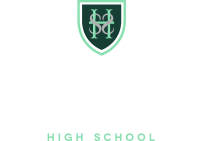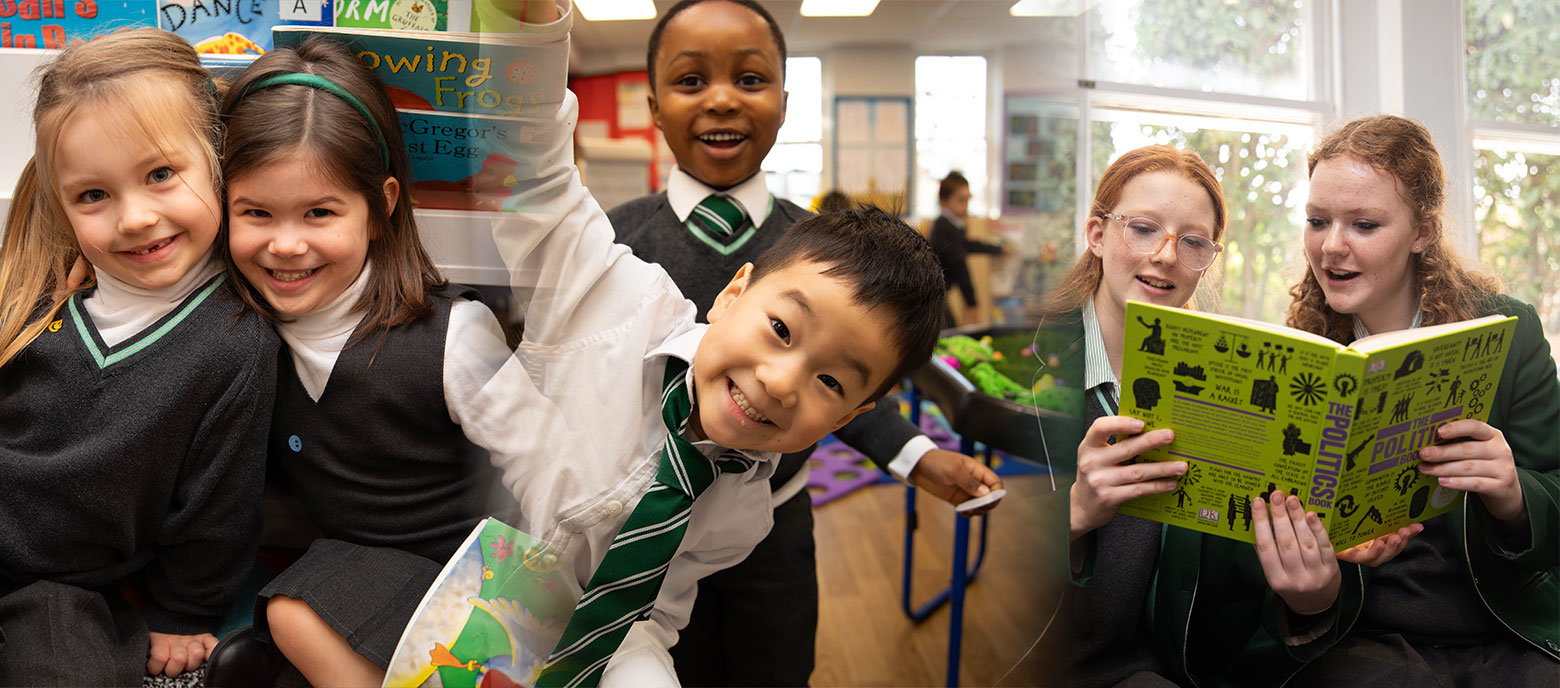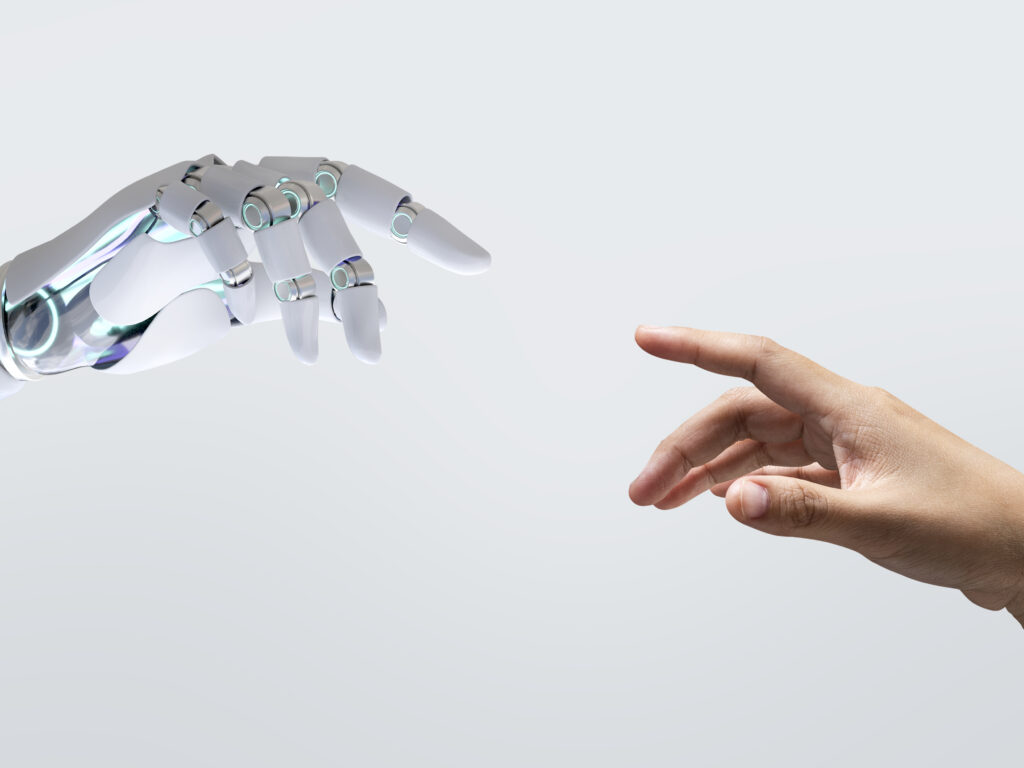Written by Mr Matthew Shoults, Principal, Surbiton High School
Are Graduates Ready for the Modern Workplace?
Employers regularly complain that graduates emerge into the jobs market without the skills for a modern workplace. A quick internet search confirms that this grumble has been echoing around for at least a decade. Yet the advent of AI has added a double-pronged attacked to this argument: now graduates not only need to master this technology to be employable, but also develop the soft skills which AI cannot replicate. With such demands in the ascendency, this perhaps puts even more scrutiny on whether the knowledge-rich education provided at school and university has real value. Put bluntly, do we really need to know anything?
A Historical Perspective on Education
The Victorians were greater reformers of learning, and Matthew Arnold, the headmaster of Rugby School, famously felt that schools ought to teach “the best that has been thought and said”; and it is almost certainly the case that this is what Mary Bennett had in mind as the first Head of Surbiton High School, when it was set up to offer, and I quote, “superior education for girls”. As a result it has been argued that this canonical approach to learning is the root of the problem, the lack of skills teaching.
Skills Beyond the Classroom
In many ways, this is a narrow and uninformed claim, because it is based on the false assumption that classroom knowledge is the only thing gained in a school. But of course in lessons students analyse, speak, work in teams, debate, use software, and so much more beside; and outside of lessons they are involved in co-curricular activities, trips, and all sorts of other experiences; and these activities develop in them all manner of additional skills. It is actually possible to provide an education which imparts knowledge, and still foster skills; and I hope and believe that Surbiton High School does just that.
The AI Challenge: Rethinking the Value of Knowledge
Nevertheless, AI does supercharge this question. It is now possible to get incredibly focussed answers to questions not just of basic facts but far beyond this, and these responses can be apparently very smart. There are of course obvious problems with AI as a knowledge source. It is trawling others’ websites, and they and it can make mistakes. But it is improving, and we do know that it can often produce very helpful responses, and its growing power is undeniable. So should we still treasure knowledge, either in the workplace or wider life?
Plato’s Ancient Warning
The question was actually asked 2,500 years ago by Plato, who told a myth of a particular inventor, who presents his prize discovery, the letters of the alphabet, to an Egyptian king. He explains that his invention will make the Egyptians wiser and give them better memories. The king rebukes him, insisting “This discovery of yours will create forgetfulness in the learners’ souls, because they will not use their memories. They will appear to be omniscient and will generally know nothing; they will be tiresome company, having the show of wisdom without the reality.”
Memory in a Pre-Digital World
Plato’s point was that if you didn’t have to memorise something, you didn’t truly have it internalised, and know it properly. In a way, what Plato says is true. In societies which are illiterate, we know that people are much better at memorising things. When you don’t have a written form of something, you have to remember it, and this sort of expertise used to be prized. 20th century ethnographers recorded the most famous poets in Greece, the Balkans, and as close to home as the Outer Hebrides being able to recite several thousand lines of traditional poetry by heart. Rather less artistically, those of my generation will recall that before mobile phones, with their contacts storage, we all knew quite a lot of phone numbers by heart, because we didn’t have a device for having those numbers to hand.

Knowledge vs. AI: What Employers Really Value
But poetry by heart and a knowledge of phone numbers is a limited offering for a future employer. So do we still need to treasure knowledge? Does it have value, when we can summon knowledge and solutions in no time with AI? I would like to suggest four reasons why we should still embrace knowledge.
1. Knowledge Helps Us Judge Information
First, if we don’t know things, we have no instinctive way of judging information when it is presented to us. If AI tells you a piece of information, such as that Leonardo Da Vinci painted the Mona Lisa in 1815, and you don’t know anything about History or Art at all, you’re not in a position to sense that something doesn’t look right. Holding knowledge gives you a way of testing out new information. And this is going to be critically important and powerful in the future. In a world with information overload in terms of availability, and with deep fakes and hallucinations, and where, in both work and wider life we will have to try to understand whether something which is apparently “true” is really a fact, or the opinion of an influencer stated as fact, the most powerful thing we may have to go on is what we have already learned properly as some basic knowledge. It provides us with a frame of reference, something to measure things by.
2. AI May Reduce Brain Activity
Secondly, Plato might actually have been right. A recent MIT study has shown that relying solely on AI for tasks like writing can reduce brain activity and memory. A group in the study who only used ChatGPT to write an essay in three sessions, and then performed the fourth and final task with no such help showed almost 50% less neural activity in their brains. Just as Plato said that the alphabet would reduce basic memory, so Chat GPT used all the time reduces the ability to think hard.
3. Knowledge Enriches Conversation
Thirdly, in the world of good conversations, it is usually not only opinions which interest us, but facts, unusual information, sharing knowledge of great interest. It isn’t generally a good, or interesting look, in a conversation, formal or informal, to say “If you give me a moment to look it up, I can think of something interesting to tell you.” And I think we all want our students to emerge with the ability to hold an interesting conversation in their lives.
4. Knowledge Brings Joy
And finally, fourthly, knowledge is a joy. It surprises, it delights. We enjoy recalling unusual information. It is natural to revel in ideas and details which are rare, beautiful or which unravel mysteries. Did the invention of the search engine mean the end of quiz shows, and of quiz competitions? In some ways it should have – after all, why are we so fascinated by the ability of people to remember something which can be looked up? I think it is because that grasping at the detail, and having an understanding of the world, is still something we recognise and value. Aristotle himself said “All people by their nature desire to know.”
So as well as the skills our students learn, in the classroom and in wider activities, the knowledge imparted in schools will still have value. It will help young people understand the wider world, and have something to judge it by. It will keep them smart, and the struggle will help them to think. It will bring them and others joy in the appreciation of and understanding of the world.





